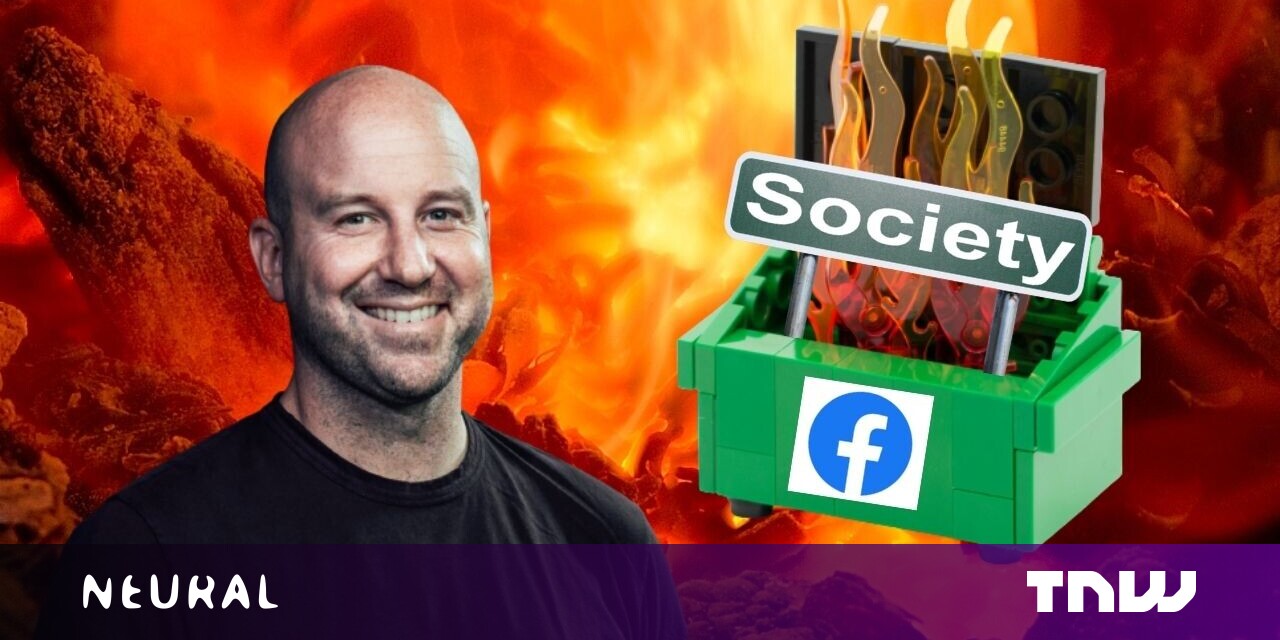
Meta’s incoming CTO, Andrew “Boz” Bosworth, is making quite the splash. The kind of splash you make by cannonballing into your swimming pool, soaking all your guests, and then blaming them for getting wet.
In a Sunday interview with Axios on HBO , Bosworth was grilled about misinformation on social media.
The Facebook veteran mounted a stern defense of his company. According to Bosworth, it’s not platforms that are responsible for misinformation — it’s their users:
Individual humans are the ones who choose to believe or not believe a thing. They’re the ones who choose to share or not share a thing. I don’t feel comfortable at all saying they don’t get to have a voice, because I don’t agree with what they said.
Bosworth does have a point: people are awful and stupid. We’re drawn to divisive content, susceptible to bullshit, and prone to confirmation biases. Yet Bosworth overlooks how algorithms influence these tendencies.
Facebook’s recommendation systems are frequently accused of spreading misinformation to maximize profit. Critics say the company eschews efforts to address this as doing so would limit growth.
As the creator of the News Feed, Bosworth knows Facebook’s algorithms better than most. However, he argued that users are responsible for what they consume.
People want that information. I don’t believe that the answer is ‘I will deny these people the information they seek and I will enforce my will upon them’.
This defense of free expression simplifies Meta’s influence. The company doesn’t only choose what appears on Facebook ; it also determines what the platform promotes.
Meta delegates many of these decisions to recommendation algorithms, which have shown a penchant for false and divisive content.
Frances Haugen, the Facebook whistleblower, has endorsed an alternative approach. She wants the company to ditch engagement-based rankings for chronological feeds:
I’m a strong proponent of chronological ranking, or ordering by time with a little bit of spam demotion, because I think we don’t want computers deciding what we focus on.
The issue with this approach is obvious: depreciating engagement could reduce revenues. However, there are signs that the switch is possible. Last week, Meta’s Instagram announced plans to launch a chronological feed next year.
The new rankings won’t become the default, but the move suggests that further changes could come.
They’re certainly worth consideration. While we’re ultimately responsible for what we consume, Meta doesn’t have to amplify our worst instincts.
All Rights Reserved | thetechnetwork.io
All Rights Reserved | thetechnetwork.io





